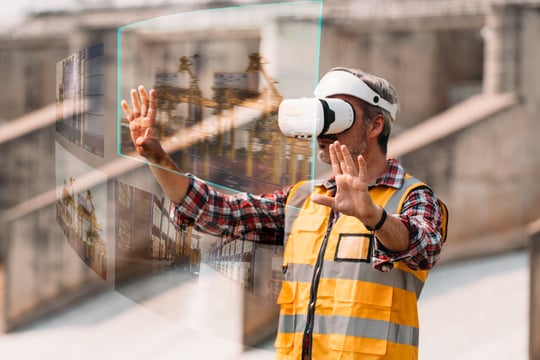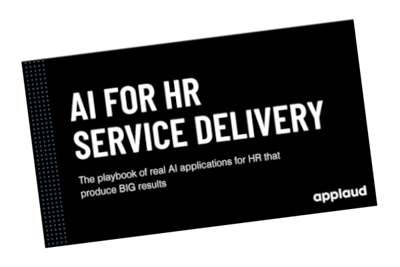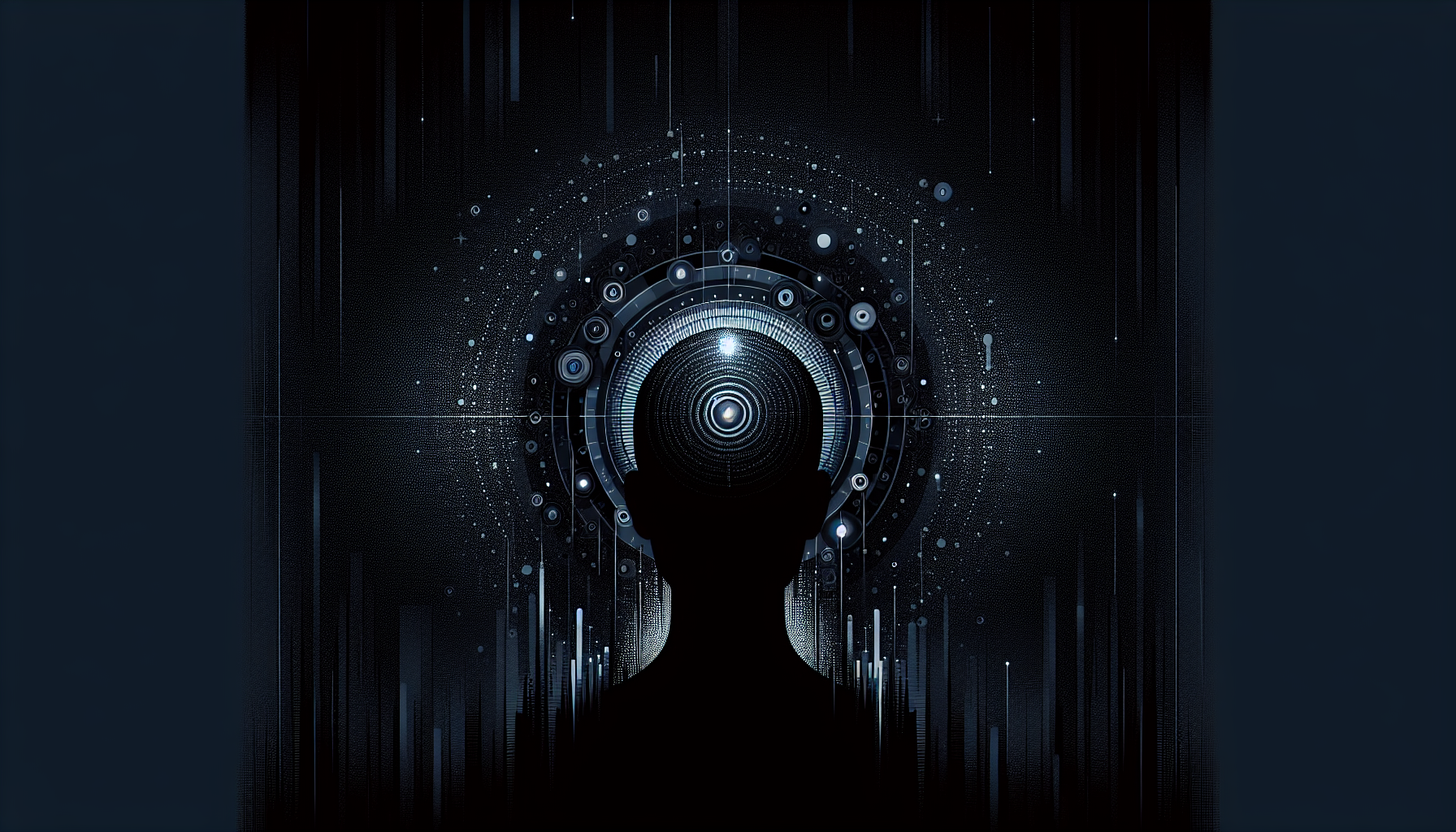Exploring the Intersection of AI, HR, and Virtual Reality Training
In the ever-evolving technological landscape, AI in HR has emerged as a pivotal tool, reshaping the way we think about employee development. But what happens when this innovation meets the immersive world of Virtual Reality (VR)? We are standing at the brink of a new era where AI HR Virtual Reality Training represents the next frontier, promising a learning experience that's unprecedented in its engagement and effectiveness.
 Playbook: AI for HR Service Delivery
Playbook: AI for HR Service Delivery
Learn how HR leaders can leverage AI to increase workforce satisfaction, minimise HR ticket time and improve employee experience at every stage. Read Now.
Why Is VR Training Gaining Traction Among HR Professionals?
Virtual Reality's capabilities to simulate any environment and to tailor experiences on-the-fly via AI HR Software Solutions, have made it a hot topic within forward-thinking HR circles. But as HR professionals, one might ask, “How exactly does VR align with the desired outcomes of employee training programs?”
The answer lies in VR's unique advantages: enhanced employee engagement, superior retention of information, and the capacity to emulate complex, real-world scenarios without the risks or costs associated with them. From soft skills development to leadership training, and particularly emergency preparedness, VR training modules are transforming the learning landscape.
AI-Powered Customization: A Game-Changer for Training?
Personalization is not just a buzzword in the context of AI Employee Experience; it's an achievable reality. AI's analytical prowess allows training programs to be shaped by a rich understanding of an individual's performance, learning pace, and preferences. Advanced AI applications in VR training lead to learning paths that feel bespoke, intensifying the impact of every training session.
Challenges in Implementing AI HR Virtual Reality Training
Despite the clear advantages, integrating VR into existing HR frameworks is not without its challenges. Cost implications can be significant, and technical requirements, daunting. Questions of scalability and compatibility with current systems can impede progress. And of course, there are ethical considerations; can we ensure that AI is used responsibly to augment rather than replace the human touch in HR?
Cost vs. Benefit: Evaluating the Investment in VR Training
Implementing cutting-edge technology is an investment, and like any investment, it requires a meticulous cost-benefit analysis. While the initial setup for VR and AI systems might be costly, organizations need to consider the long-term savings and value generated through more efficient, engaging, and tailored training solutions. This is where AI HR Analytics enter the picture, offering insights to evaluate the return on investment of VR training initiatives. Analytics play a critical role in this assessment and continual optimization of the training experience.
Integrating VR with Existing HR Systems
The logistical challenge of integrating VR into existing HR platforms and software can be off-putting, yet it does not have to be a roadblock. Seamless integrations with tools like Workday, Teams, Slack, and ServiceNow can pave the way for smooth assimilation of VR training within HR operations.
The Role of AI in Crafting Immersive VR Scenarios
AI HR Tools enhance the VR experience by using predictive models and real-time adjustments to shape the simulation scenarios. Imagine training for a high-pressure negotiation or an emergency situation—AI can dynamically alter the virtual environment based on the user's choices, pushing the boundaries of experiential learning.
The Emerging Trends in AI and VR-Enhanced Training
With the cutting-edge fusion of AI and VR, we're witnessing the emergence of nuanced trends within the HR sector. AI HR Tech Trends point towards a future where gamification, real-time feedback loops, and scenario-based learning come standard in training regimens, ushering in a new level of interactivity and engagement.

Will AI and VR in HR Present an Ethical Quandary?
As with any frontier technology, ethical considerations are paramount. The utilization of AI in crafting VR scenarios opens a box of complex questions<—>such as privacy and data handling, algorithmic fairness, and potential bias. Ethical Considerations in AI and HR Management is a critical dialogue that must advance in tandem with technology itself.
Realizing the Full Potential of AI HR Virtual Reality Training
For organizations seeking to leapfrog into a new era of employee training, realizing the potential of AI-powered VR requires commitment—not only to the technology but to a vision of continuous learning and improvement. Indeed, the seduction of a 'set it and forget it' mentality is incompatible with the ethos AI and VR demand—these are tools that thrive on evolution and refinement.
Prospects and Predictions: The Future of AI in HR Training
As we gaze into the future of AI Impact on HR, the prospects for VR training seem boundless. But it begs the question, "How does this advance the professional growth of HR teams managing these tools?" The flowering of creator platforms and courses geared towards AI HR Training and Courses, highlight a crucial opportunity for HR professionals to build skills that are both current and highly valued.
Companion Solutions to AI HR VR Training
To propel VR training from a fascinating novelty to an indispensable tool, complementary solutions must be in play. Given the data-intensive nature of AI, AI HR Analytics tools are essential for monitoring effectiveness, while AI-enabled virtual assistants can provide employees with a seamless transition from training to practical application.
Conclusion: Balancing the Scales Between Innovation and Implementation
In a rapidly advancing tech space, it is easy to get swept away by the allure of innovation, by the promise of machines that teach and environments that mold to our learning needs. Yet, it is crucial to maintain a balanced perspective. The emergence of AI in HR and VR training represents a thrilling potential—but only if wielded with wisdom and foresight.
While VR training presents undeniable advantages for engagement and customization, the cost and complexity of implementation, ethical considerations, and the need for complementary systems cannot be overlooked. The future of AI HR training is, without question, one packed with excitement and potential—but it will be the careful, considered adoption, rather than the hurried rush, that will ultimately yield the most fruitful results.
As we stand on the cusp of what could be a revolutionary shift in how we train our workforce, we do so acknowledging the power of these technologies. But with power comes responsibility—the responsibility to implement AI and VR in HR not just with technological acumen, but with a human touch. A touch that reminds us that, at the heart of every brushstroke of innovation, there must lie a commitment to enhancing the lives and careers of those we seek to train.
And so, let us embrace the opportunity with cautious optimism, ready to infuse AI HR Virtual Reality Training with the richness of human insight. The next frontier awaits—and it looks nothing short of spectacular.
Playbook: AI for HR Service Delivery

Fear. Optimism. Adoption. Download our playbook to learn how HR leaders can increase workforce satisfaction, minimise HR ticket time and improve employee experience at every stage.


